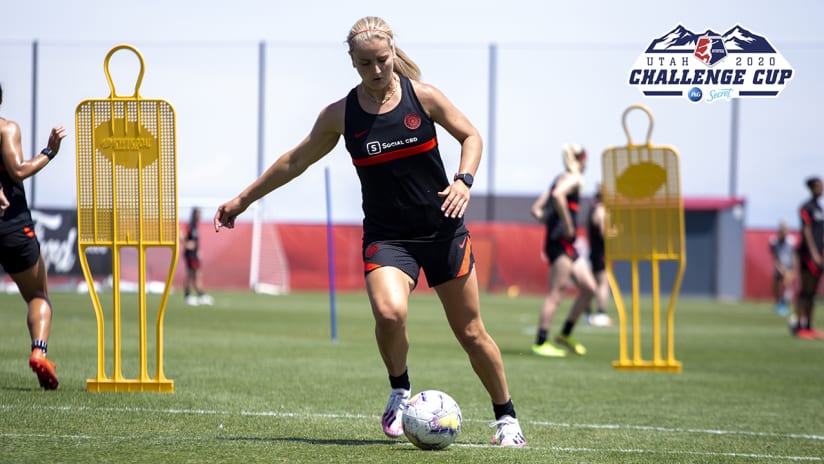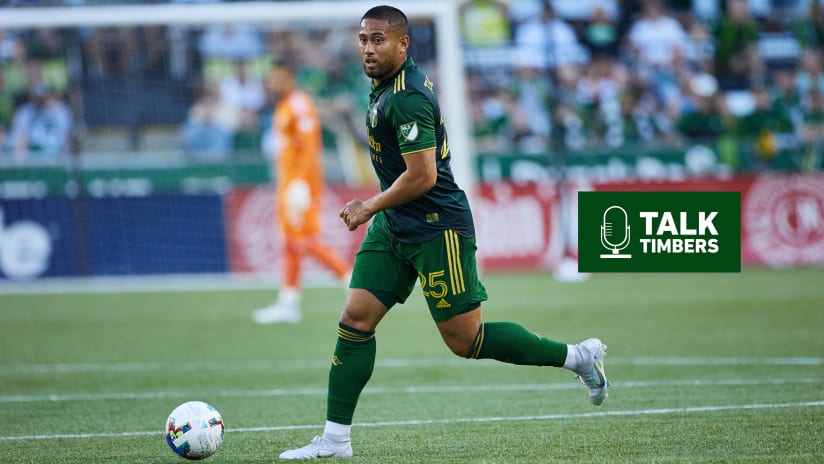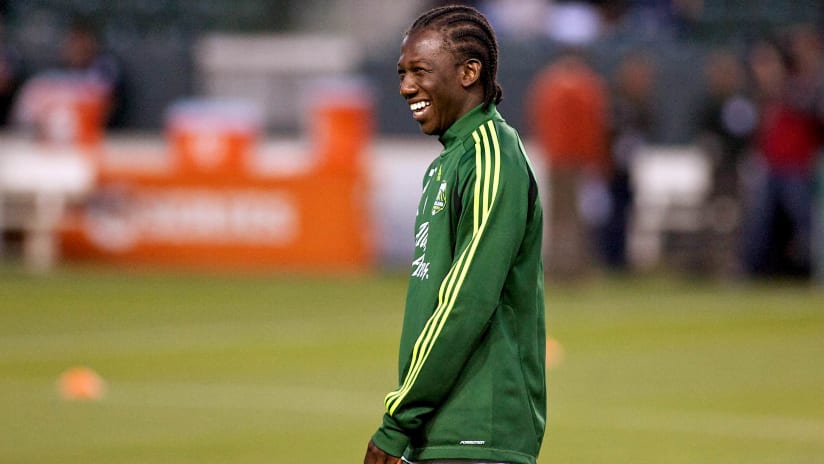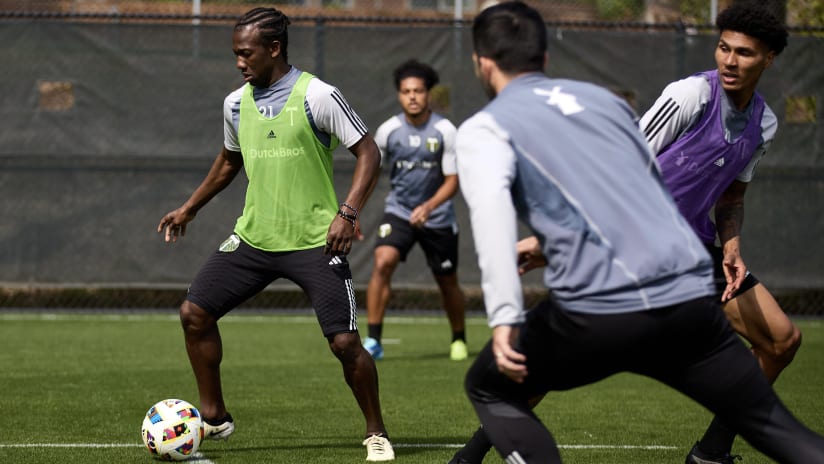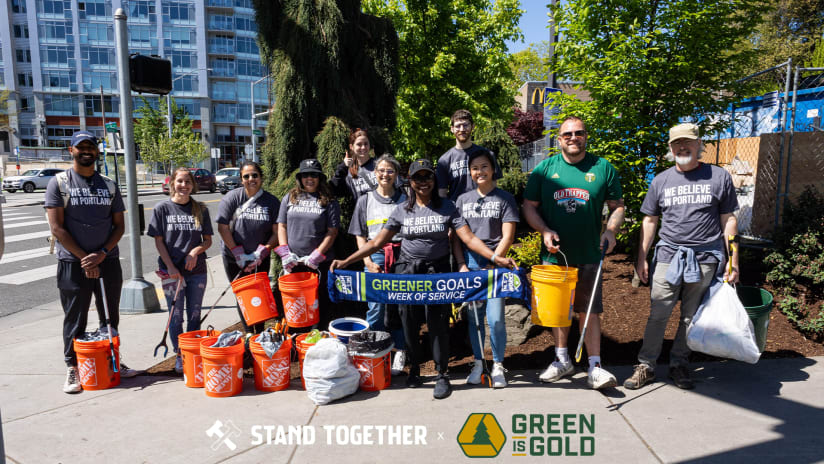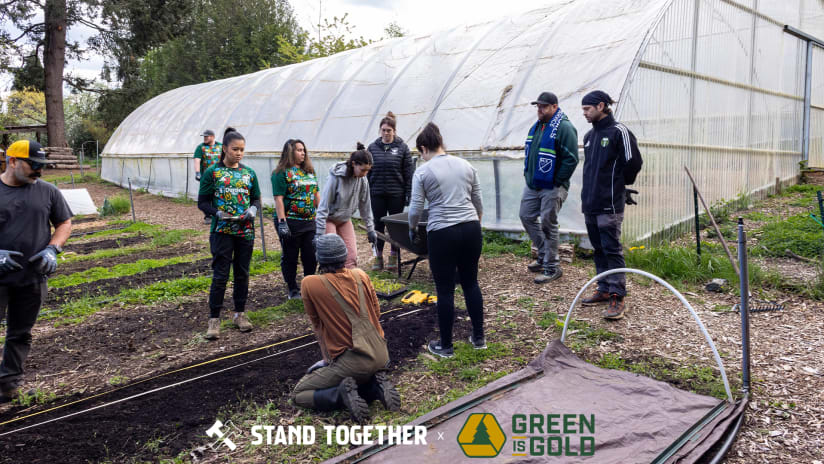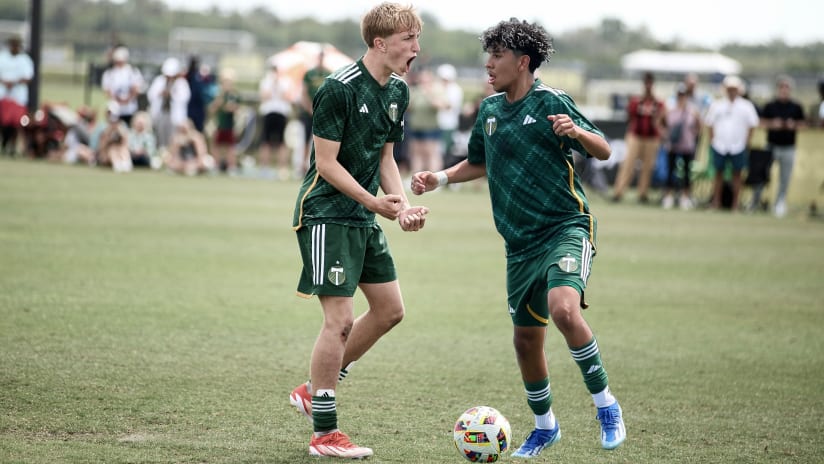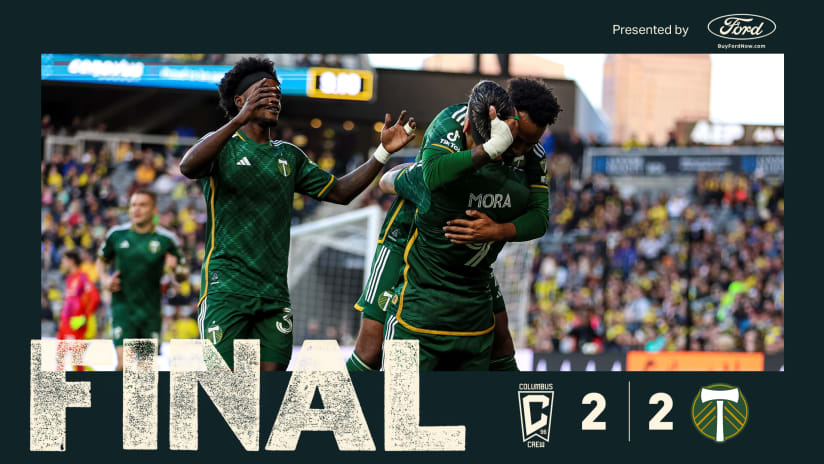PORTLAND, Ore. – “Health and safety.” They’re not the first words out of Mark Parsons’ mouth when asked about expectations, but he’s built to them. It’s 2020, nothing is normal, so before he gives his real answer, he has to explain why: why the normal goal of “trophies” isn’t said first; why phrases like “only starting to develop” have entered Portland Thorns FC's lexicon; why “safety, mental and physical” are more than just the obvious subtext, right now.
He’s not ignoring wins. Fourteen hours before the bulk of his team departs for Utah, where the NWSL is staging a month-long, eight-team tournament, the Portland Thorns’ head coach is optimistic. “We have a sneaky little chance here of being really successful.” But he’s also keeping things in perspective.
His team has some injuries. “Three or four,” he says. That team is also on the back end of a huge offseason overhaul. His new squad has never played together before, and the bulk of their pre-tournament preparation happened in months of isolation, with the concept of team redefined by a world of Zoom calls.
“It’s a tournament,” Parson offers, providing the context to his team’s NWSL Challenge Cup goals. “The number one priority is going to be health and safety, mental and physical. And number two is to live our identity. Be Thorns. Be Thorns on the field in our style of play. Be Thorns on the field in our culture. Take care of each other and our health and safety, and be Thorns on and off the field.”
Identity. From the outside of a cabal, it’s nearly impossible to properly cover. At least, it’s impossible to cover in sports, where locker rooms excavate a moat between a team’s reality and the outside world. Leagues and teams offer regular media access in the hopes that stories get told, but those hopes always run against one of sports’ truisms: The team has to come first. And more often than not, that means keeping things on the near side of the moat.
Some things, though, can’t be hidden, and in the various pieces that make it into the open, a picture starts to form. Consider Parsons’ comment about identity, a theme he has made prominent this offseason, Consider, too, the words of the team captain Christine Sinclair when asked about the concept. The question: “The team has undergone a lot of changes. How would you describe the identity of the squad?”
“The first word that pops into my head is just close,” she said. “We haven’t been around each other that long, but we all get along. It’s a tight-knit group. Everybody is fighting for each other on the pitch. We’ve been through a lot together, already …”
That interview was conducted last week, 12 days before the Thorns’ first Challenge Cup game against the North Carolina Courage (June 27, 9:30am PT, CBS and CBS All Access). Fifteen minutes later, with Sinclair transitioning out of her interview chair, Lindsey Horan sat down and faced the same question. Sinclair was still within shouting distance, babysitting the duo’s dogs.
“I’m about to steal ‘Sincy’s’ words,” Horan said, amplifying so Sinclair would hear. “I liked what you said!”
The team is new. They know. They know some valuable pieces have gone. They know some valuable talents have been brought in. The surprise, they explain, is how quickly those new talents have brought into the team’s approach.
“The team’s identity is a tight-knit group,” she echoed. “The players that we now have have really pushed the group in a different way, but (they) are also awesome characters. The way they fit into this team is incredible, and I think even the two or three weeks that we’ve been [together in Portland], you see that already. That says a lot.”
This feels like the place to reset those changes. Portland’s coming off a decent 2019, but when you’re the marquee club in your league, decent isn’t exactly the bar. “Evil Empire” is the term people throw, and when you’re the New York Yankees of your league, there’s no space for down seasons. The Empire couldn’t see the Rebellion and take a “get `em next time” approach.
Last year’s third-place finish in the regular season was the team’s lowest under Parsons. A semifinal loss in Chicago marked the first time since 2016 that the team didn’t play in the NWSL’s final. And that year, the team won the NWSL Shield. Portland’s 2019 would have been progress for six of the league’s eight other teams, but for the Thorns, it was reason to shake things up.
“A few of us have not been happy with how the last couple of seasons have ended,” Sinclair said, her even tone leaving most of the details in her subtext. “This tournament is a chance to steer the ship in the right way.”
Emily Sonnett was the most difficult departure. She left for the Orlando Pride, traded in a deal that landed Portland the first pick in January’s College Draft. Midge Purce left, too, having been traded to Sky Blue, with a number of other key departures defining the team’s overhaul. Six prominent internationals (Hayley Raso, Dagny Brynjarsdottir, Ellie Carpenter, Caitlin Foord, Andressinha and Ana Crnogorcevic) have gone overseas, with a valued young defender (Elizabeth Ball) compelled into another deal.
In return, the Thorns may have acquired the deals’ best present day assets. U.S. international Becky Sauerbrunn is still one of the NWSL’s best defenders. Costa Rican standout Rocky Rodríguez is one of its best midfielders. They may have also obtained the deal’s best long-term assets, too, with attackers Sophia Smith and Morgan Weaver selected with the first two picks in January’s draft.
What those acquisitions created in turn, though, was a cultural void. Turnover wipes out what’s there, leaves space for something new. Voices like Sinclair and Horan were still here, but between 2019’s results and 2020’s shakeup, a different version of the Thorns needs to remerge.
“Our identity in our culture is very simple,” Parsons says. “It’s team first, and [a culture where] accountability is going to be really, really high. Self accountability and also holding other players accountable. Putting the team first and building trust among the group, players and staff, is something we spend a lot of time on.”
Even from our side of the moat, we see how the acquisitions fit. On Thursday, Horan shared an anecdote with the media about Sauerbrunn chiding her about doing rehab. How do you tell Becky Sauerbrunn no, Horan explained? Rodríguez has an entirely different energy, but the world view she shares on Instagram and in interviews has proved a constant. Likewise, what the world has seen at a distance from Smith and Weaver is what the team’s youngest players have shared in their new home. These were talent-based decisions, sure, but in the attitudes the four have brought to the Thorns, a bit of Portland’s vision has been revealed.
All of which brings us back to identity. Over his first four years in Portland, Parsons touched on the subject often, though it was usually in terms of what that identity meant on the field. What are the principles of our work, in training? How does that translate to games? How does that translate to the team’s playing style? Having inherited a veteran, established core, it made sense for Parsons to prioritize results.
Things have evolved, though. And that evolution has demanded a reset. And in the early stages of that reset, broader goals remain in focus.
“Be Thorns on the field, be Thorns off the field,” he reiterated, toward the end of our interview. “If we do that to the best of our ability, we have a real chance to do some real damage in this tournament.”
How that damage happens, though, means emphasizing process more than results. For now.
“That means we do our best, we empty the tank, we review, we reflect, we grow,” he explained. “We’re better the next day.”
Competitive games may be here, now, and for the players, every game comes with a must-win approach. At least, that approach takes over come kickoff. But for 2020’s Thorns, that “next day” will need to stay in focus. The commitment to tweak the team’s identity and culture? It’s about more than the team’s next month.

